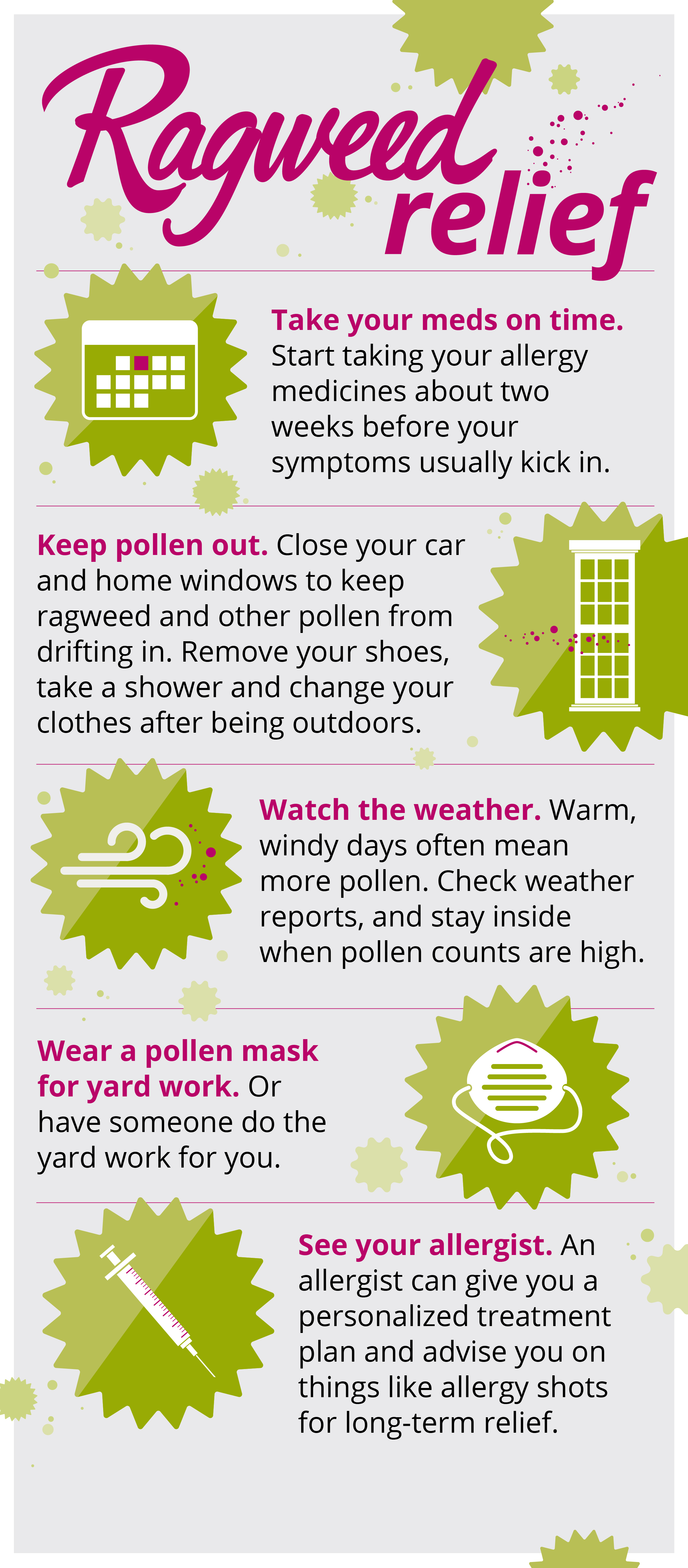Health library
Back to health libraryProtect yourself from ragweed allergies
Ragweed season is on its way. In many parts of the country, it starts in the middle of August. If you're allergic to ragweed, that means your allergy symptoms may be about to flare up. The good news? There's still time to start taking precautions against the sneezing, sniffling and itchy eyes.
Here are a few good ideas to help you get ready for ragweed season: 
Ragweed relief
Take your meds on time. Start taking your allergy medicines about two weeks before your symptoms usually kick in.
Keep pollen out. Close your car and home windows to keep ragweed and other pollen from drifting in. Remove your shoes, take a shower and change your clothes after being outdoors.
Watch the weather. Warm, windy days often mean more pollen. Check weather reports, and stay inside when pollen counts are high.
Wear a pollen mask for yard work. Or have someone do the yard work for you.
See your allergist. An allergist can give you a personalized treatment plan and advise you on things like allergy shots for long-term relief.
Reviewed 4/23/2025
Sources
- American College of Allergy, Asthma and Immunology. "Leaves Are Falling. Autumn Is Calling. So Are Fall Allergies." https://acaai.org/news/leaves-are-falling-autumn-is-calling-so-are-fall-allergies/.
- American College of Allergy, Asthma and Immunology. "Now's the Time to Get in Front of Fall Allergy Symptoms." https://acaai.org/news/nows-the-time-to-get-in-front-of-fall-allergy-symptoms/.
- American College of Allergy, Asthma and Immunology. "Ragweed Allergy." https://acaai.org/allergies/allergic-conditions/ragweed-allergy/.
- Medline Plus. "Allergies, Asthma and Pollen." https://medlineplus.gov/ency/patientinstructions/000489.htm.
